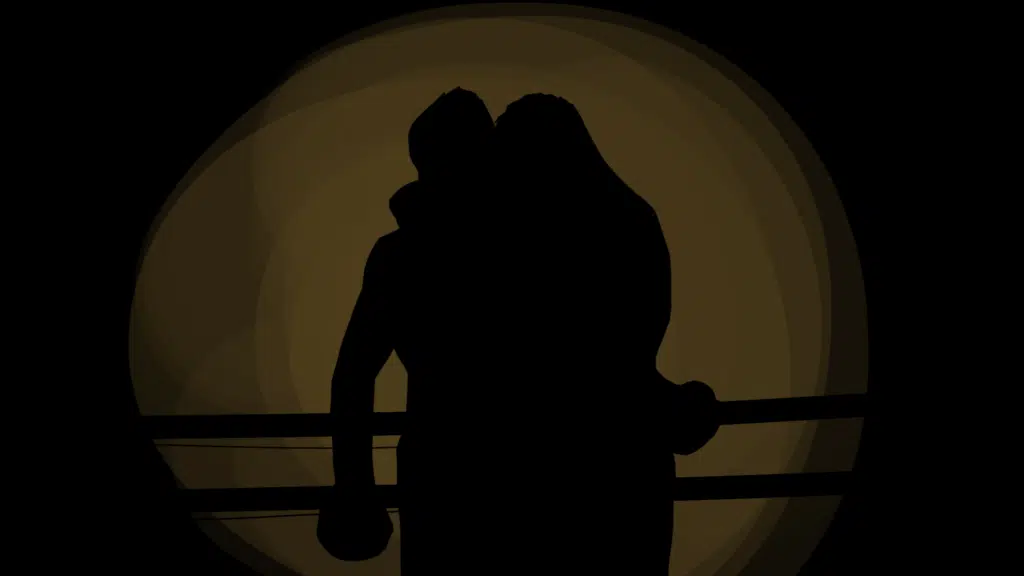(George F. Walker, one of Canada’s most prolific and popular playwrights, pens an elegy to his father in seven parts. Esoterica will syndicate one part each day leading up to Father’s Day. Read Part One and Two here.)
By George F. Walker
I forgot something. Probably because there’s so much to remember. This was about something an officer who was guarding my father in that prison said to him as he was being escorted out.
“Hey, Mac, if you want to join the military so badly maybe you should sign up for your own when you get home.” A wisecrack.
But my father, took it as a challenge. So, he did just that. He joined the army. But almost immediately there was a problem. Their regiment was being sent East to put down the Cape Breton Coal Miners’ strike. And as a son of a military man who was also a devoted communist, the wrongness of this struck deep. As it did with most of the other soldiers who were all from working class families. So, they all talked about that on the train. And most of them were pretty sure they wouldn’t be able to do it.
There would probably be a revolt. Because they knew all about the conditions those miners had to work in. And the more they talked the more they were sure they would disobey those orders. At quite a cost. My father often wondered what would have happened if that strike hadn’t been settled before the train arrived in Nova Scotia. Settled unfairly for the miners.
And he was pretty sure they would have gotten a better deal if the army had arrived, ignored their orders. And stood beside the miners. I’m sure he wished it had come to that. Because using an army full of men from trade unionist families to break a strike, was a potentially explosive deeply cynical thing to do. It was a big fuck off to both the soldiers and the miners.
My words. His thoughts.
But now the Spanish Civil War struggle was on. The struggle between my father and the rest of his family. He ached to go. He wanted very badly to get himself over there and try to murder Franco by all himself if he could. That bastard and his fascist army of thugs had overthrown a legitimately elected government. And there was a price to be paid by everyone if he got away with it. It made it even more likely that Hitler and that evil clown Mussolini would rise and threaten the world. He still felt years later that he should have gone.
But…
My grandmother would have none of it.
He was the father of 3 children. The youngest just a year and a half old.
“If you go, you won’t be welcomed back.” My grandmother looked like she meant it. But my mother just sat there and cried. That’s what he remembered most. Her crying. She looked so scared. And that’s why he decided to stay put.
But!
When 1939 came and England declared war on Germany, Canada immediately followed. And my dad signed up for the army within days. My mother said it was actually the same day “and he didn’t tell anyone. He just did it.”
My youngest sister, 12 years older than me, has only one memory of her childhood. Only one. And it’s kind of devastating. My father sitting her down by herself and explaining that he was going away. Probably for a long time. But that he’d do his best to get back as soon as possible. And to remember that he loved her very much. She told me this just months ago and her eyes glistened as she recalled.
She was only 5 at the time and my father always said that watching her wave goodbye from the platform as his train pulled away, was the hardest most punishing moment of his life but even my grandmother gave her blessing this time.
Because well most everyone thought the future of the world was at stake. They thought.
But my father KNEW. Because he’d been paying very close attention.
So off he went with the 48th Highlanders, 1st Canadian Division. The Toronto regiment that now just proceeds Santa in the Christmas parade. Was a time when you could look around the crowd and see elderly people get teary eyed when they saw them. And heard the pipes. I did every time.
So, the war. Just some of things he told me. Being loaded on to a train in France to go assist a Scottish regiment that was surrounded by a PANZER Division while he and his fellow enlistees were only armed with WW1 carbines.
They all knew most of them were about to die. No noise on that train. Just silence. And thoughts about what they’d left behind to come all this way and, right off the bat, get slaughtered. My father wanted to laugh. So, he did. Then he was sorry that he did because a lot of his pals were praying. And his laughter upset them. He told me he thought he should get up and apologize to them one by one. And that made him laugh even more. When I was a teenager his sense of humour sometimes just irritated me. But if I was on that train cradling an old carbine and about to take on four or five hundred of the most powerful tanks in the world, I might have (maybe should have) laughed too.
Anyway, for the second time in his military career his train journey was mercifully cancelled when the Scottish Division surrendered.
“Thank Fucking Christ!!” one of the other infantrymen yelled out when they were told. And then almost all of them laughed. But a few cried. Tears of relief and gratitude, my father thought.
They were in France when it surrendered. Nothing to do except get back to England. This war was getting confusing.
Sicily. Sicily was a no-go zone. He lost 3 close friends there and would never talk about it.
He liked talking about some things though. Stupid or funny or infuriating things in particular. Like being so tired on a forced march that he passed out and fell into a ditch.
It was noted at that time that he might be too old for all this. He was 35 when he went overseas and that was almost 4 years ago. Most of the soldiers around him were still in their early 20s. So, he was approached about a lighter duty.
“Like what?”
“You could be an officer’s batman”
“No sir. I can’t. That’s servitude. And I won’t do it. “
“You will if you’re ordered to. Or you’ll be arrested.”
“I’d rather be arrested!”
He was still angry when he told me about that exchange.
Then they threatened to send him home. Unless he agreed to do something “a man of his age” could handle. No way he’d let them do that. And then it hit him.
“I can cook. I cooked in the camps.”
“What camps? Cooked what?”
So, he told them. And he told them he could bake pies too. Good pies. Just like his Scottish mother taught him. And he could. And he always did. He was the pie maker in the family. And soon after a little more frightening and tedious action (in that war apparently something could be both those things at once) he became a cook for the last two years of that war. A good one. A very good one. So good that even after the war ended, they kept him over there to cook for officers who managed the occupation.
Could they do that? They could if they ignored all entreaties from his family to send him home. Letters that made it clear that my mother, who had worked in a small arms plant all through the war, was wasting away. From both the intense asthma she was suffering from and the deep sorrowful way she missed her husband.
The first letter was ignored. And another one with even more concern about my mother. Then a few more angrier ones. Until finally, one of my sisters decided to write to The Minister of Defence. Begging. Actually, begging him to send her father back to his family. And that letter written by my oldest sister Margaret who hadn’t seen her father for almost 6 years is finally what brought him home.
Just one final wonderful thing he told me about that time. A boxing match was arranged between the Canadians and the Americans soldiers. Someone in the regiment had seen my father fight years before so he was “volunteered” to get in the ring again. He tried to explain that 3 rounds were harder than most knew, that it might actually kill him without having any time to train or condition.
But bets had been placed. Mostly against my father he later found out. Because the American boxer was a brawler from Detroit. Taller. And stronger than my dad. But fortunately, just as out of shape. They fought for two rounds, my dad backing up, evading. The American trying to stalk and destroy him. Both activities are actually exhausting. In the 3rd round with all the soldiers around them screaming for more action both boxers just decided to go for it. And that’s when the most special and rare thing that can happen in a fight happened to them. They knocked each other out. Cold. When they’d both recovered, they laughed, they hugged and then they had a drink. My father actually giggled when he told me that story. He never giggled. But that was a special memory.
To be continued …
George F. Walker is one of Canada’s most prolific and popular playwrights. Since beginning his theatre career in the early 1970s, Walker has written more than 30 plays and has created screenplays for several award-winning Canadian television series. Part Kafka, part Lewis Carroll, Walker’s distinctive, gritty, fast-paced tragicomedies illuminate and satirize the selfishness, greed, and aggression of contemporary urban culture.

